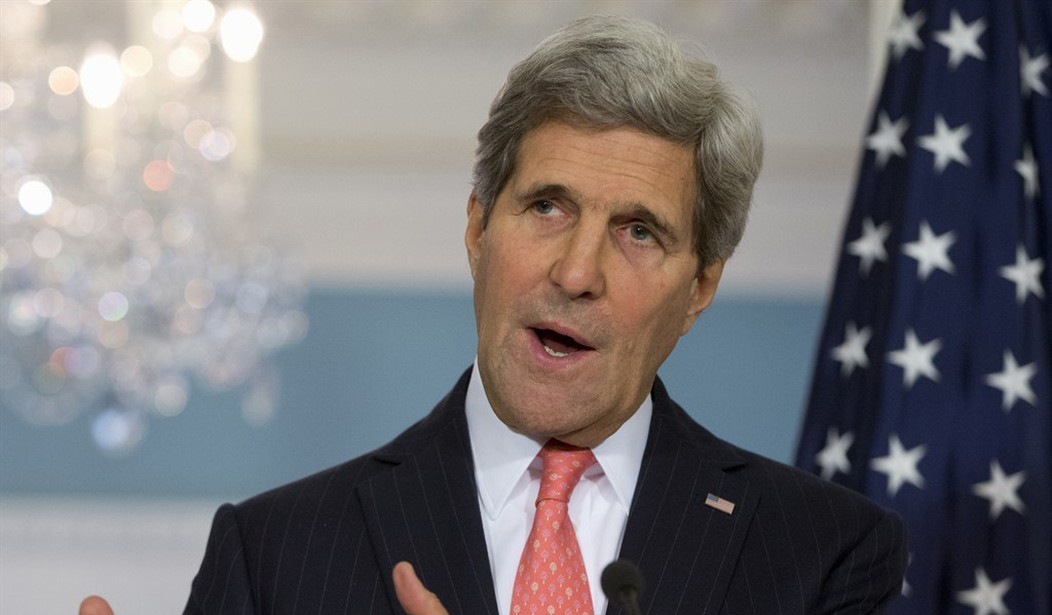After President Barack Obama decided to normalize relations with Cuba, The New York Times reported last week, he "instructed Secretary of State John Kerry to begin the process of removing Cuba from the list of states that sponsor terrorism." If that sequence seems backward to you, you are giving the State Department's list more respect than it deserves.
The list, created in 1979, triggers onerous trade and financial restrictions under three federal statutes. It is supposedly reserved for countries that have "repeatedly provided support for acts of international terrorism." But the State Department has sole discretion to make that determination, and once a country is on the list, it stays there, regardless of its government's actions, until the State Department decides to take it off.
Not surprisingly, those decisions tend to be politically driven and may have little to do with a country's support for terrorism. The fact that Cuba, first listed in 1982, remained on the list for more than three decades, despite little evidence of the Castro regime's continued involvement in terrorism, shows why the classification should not be taken too seriously.
Sen. Ted Cruz, R-Texas, who opposes the reopening of relations with Cuba, calls it "a leading state sponsor of terrorism." As FactCheck.org points out, "that's a stretch, to say the least," and it has been for years.
Fidel Castro renounced Cuba's policy of supporting foreign insurgencies in 1992, and the country's ties to terrorism have been pretty meager since then, judging from the conclusions of a 1997 intelligence review and the State Department's terrorism reports. The 2008 report noted that Cuba "no longer actively supports armed struggle in Latin America and other parts of the world," although "the Cuban government continued to provide safe haven to several terrorists."
Recommended
According to the latest terrorism report, "there was no indication that the Cuban government provided weapons or paramilitary training to terrorist groups" in 2013. Although Cuba "has long provided safe haven to members of Basque Fatherland and Liberty (ETA) and the Revolutionary Armed Forces of Colombia (FARC)," the report says, its ties to ETA "have become more distant," and its relationship with FARC recently has focused on peace negotiations with Colombia's government.
In 2010, the Council on Foreign Relations noted that "many experts are skeptical" of Cuba's classification as a sponsor of terrorism, viewing it as "a remnant of the Cold War" that "distracts from current counterterrorism initiatives." Whether or not Cuba belongs on the list, an honest assessment of its involvement in terrorism would inform the decision to restore diplomatic relations, as opposed to the decision's dictating what the country's role in terrorism is.
The 2008 decision to stop calling North Korea a sponsor of terrorism, aimed at coaxing cooperation in nuclear negotiations, likewise illustrated the gap between the list's official rationale and its practical function, seeing as the Bush administration did not even pretend the move had anything to do with North Korea's sponsorship of terrorism. Now Obama is threatening to put North Korea back on the list in retaliation for a computer attack on Sony, which the president described as "cybervandalism."
With Cuba gone, the three remaining state sponsors of terrorism are Iran, Syria and Sudan. As patrons of Hezbollah and (in Iran's case) Palestinian terrorist groups in Gaza, Iran and Syria certainly seem to qualify. But what about Sudan, which the State Department describes as "a generally cooperative counterterrorism partner"?
The main rap against Sudan seems to be that the government "continued to allow members of Hamas to travel, fundraise, and live in Sudan." By comparison, the State Department notes that the Pakistani government, which has a long history of ties to terrorism, lets terrorist groups that do not carry out domestic attacks, such as Lashkar-e-Taiba, "operate, train, rally, and fundraise in Pakistan."
Pakistan is not considered a state sponsor of terrorism, and neither is Qatar, another U.S. ally, despite its links to Hamas and the Nusra Front. Do you think they feel slighted?

























Join the conversation as a VIP Member